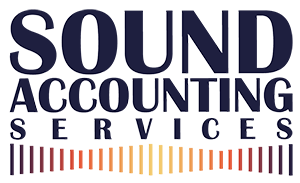Error corrections
If you discover that you’ve made a mistake you need to correct it in order to avoid paying additional interest and penalties. But, importantly, you have to follow certain procedures or you could still end up with penalties.
Correct procedure. The error correction procedure has two separate elements. Errors under £10,000 can be adjusted on the VAT return and, on the face of it, there are no penalties or interest to pay. Errors over £10,000 have to be notified separately and are subject to interest and penalties ranging from: up to 30% for a careless error; up to 70% where it is found to be deliberate; and up to 100% where it is both deliberate and concealed.
Normally…
HMRC takes the view that most penalties are careless so the normal range of penalties is 0-30%. Errors can also be either prompted (discovered by HMRC – normally during an inspection) or unprompted, where you disclose to HMRC prior to an inspection. Unprompted disclosures attract a reduced level of penalty.
Notify HMRC even when less than £10k
Most businesses are not aware that to avoid a penalty on an error that has been corrected on a VAT return you must also notify HMRC of the error even if it’s below £10,000. Example. A business discovers an underpayment of output tax of £1,500 due to failing to account for the VAT on the sale of second-hand machinery as it was dealt with outside the normal sales ledger system. As the amount is under £10,000 the business adjusts it on its VAT return and thinks that it has fulfilled its obligation.
HMRC carries out a VAT inspection twelve months later and discovers the adjustment in the company’s VAT account. As the error was not disclosed to HMRC at the time it is liable to a penalty. HMRC would consider it to be a careless error and so liable to a penalty in the 0-30% range. Because HMRC “found” it during the inspection it is considered to be prompted rather than unprompted and so the penalty range would be 10-30%. This means that, depending on other mitigating circumstances, the business would receive a penalty in the range of £150 – £450 even though the error had been adjusted twelve months earlier. There would be no interest charge as the money had been paid over to HMRC. Tip. In order to avoid a penalty in these circumstances you should write to HMRC with the following information: the period the error was made in; the amount of the error; the reason for the error; and the period the adjustment was made in. If this procedure is followed the error will be considered to have been notified to HMRC and no penalty will be levied on the business.
Get the penalty suspended
If you fail to notify HMRC of an error and it does try to impose a penalty, you should show that you’ve amended your systems to prevent similar errors happening again in the future. If you can show that you have taken action to prevent the error happening again, the penalty can be suspended and therefore avoided providing you make no more errors during the period of suspension.
Reproduced with the permission of Indicator – FL Memo Limited. For subscription information call 01233 653500;
